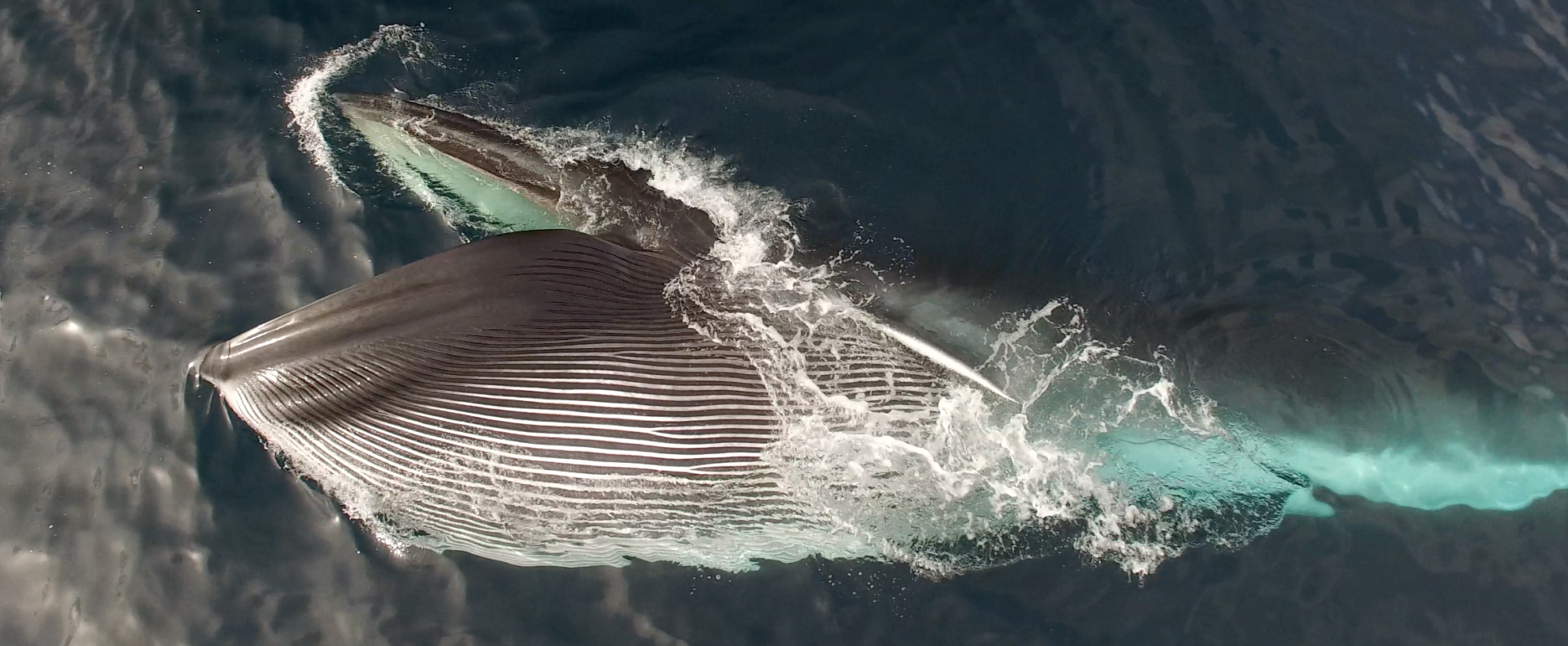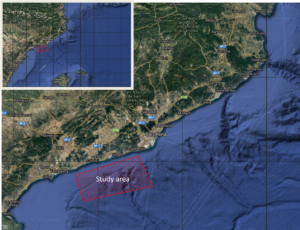
During the months of February to June, an extraordinary phenomenon occurs on the Catalan coast which, although reported for decades by fishermen in the area, until now was little known in the field of research: the presence of fin whales feeding.
With the scientific name of Balaenoptera physalus, the fin whale is a whale that can reach up to 24 meters of longitud, being the biggest whale regularly found in the Mediterranean and the second largest whale in the world.
It is an animal about which very little is known. It is also a protected and endangered specie. With the dual aim of increasing the knowlede about the presence of this whale on our coasts and promoting its preservation, the Fin Whale Project has been underway since 2013.

Objectives
01
To improve knowledge of the fin whale and the oceanographic conditions that favour its seasonal presence on the Catalan coast.
02
Raise public awareness and promote the conservation of the marine environment. By studying the species and its habitat, it is possible to determine the critical parameters for its conservation and make recommendations in this regard. Through information, it is possible to make people – both individuals and groups – more willing to collaborate in conservation.
03
Improve the ethical standards of cetacean field research through the development of more effective and less disturbing techniques for the animals.
Scope of action
Para alcanzar los objetivos descritos en el apartado anterior, el Proyecto Rorcual contempla distintos tipos de actividades:
Research
Education
Outreach
This is carried out through marine campaigns and focuses on the study, monitoring and identification of the individuals sighted, as well as the study of the oceanographic environment that favours their presence and the main risks for the species in the area studied.
To publicise the work carried out, to educate people about the sea and its biodiversity, especially cetaceans, and how to act if you have a sighting of a cetacean specie.
It focuses on the communication of our activities and the dissemination of our research results, both within the scientific community and to the general public.
Study area
The Fin Whale Project covers the coastal area between Barcelona and Tarragona. The study area is a marine strip of 1944 km2 located between the towns of Castelldefels and Torredembarra, extending 15-20 miles offshore. The base port for the project’s marine campaigns is Vilanova i la Geltrú.
The network of contacts established with fishermen and sailors in the area allows us to record sightings of cetaceans from Palamós to Ametlla de Mar.

The Garraf Coast, of which the study area of the Fin Whale Project forms part, is the coastal area that stretches from Castelldefels to Cunit. Of recognised ecological importance, it is part of an area declared a Site of Community Importance (SCI) and a Special Protection Area for Birds (SPA), and forms part of the Natura 2000 Network and the Plan for Areas of Natural Interest (PEIN). A new Important Marine Mammal Area (IMMA) of the northwest Mediterranean, the system of submarine slopes and canyons, has recently been incorporated.
Research lines
Photo-ID
Behaviour
Presence and Distribution
Oceanography
Citizen science – Fishermen
Zooplankton sampling
Microplastics
Biological samples
Morphometrics
Body condition
Acoustics
Marine traffic
Thermal camera
Satellite TAGs
Conservation and Marine Areas
General results
“We would like to thank all the volunteers and collaborators of the Fin Whale Project for their enthusiasm and effort. Without them this project would not be possible!”
The fin whale visits the Catalan coasts to feed during the spring months!
The first sightings of fin whales were recorded in 2011 and 2013, during occasional outings. From 2014 onwards, the Project’s research campaigns began to be carried out from March to the beginning of June. Daily trips are made whenever the weather permits.
Over the years we have defined the Catalan coast as a spring feeding area for fin whales. Relating oceanographic variables and accumulating a large number of sightings and generating a catalogue of more than 400 individuals.
70
533
736
400
280
Do you want to know more about the Fin Whale Project and how to collaborate?
The Rorqual Project is an initiative that EDMAKTUB has been developing since 2013, which has the authorization of the General Directorate of Sustainability of the Coast and the Sea of the Ministry for Ecological Transition and the Demographic Challenge for the approach of cetaceans for scientific purposes in the Balearic Sea (rf116/3662).

